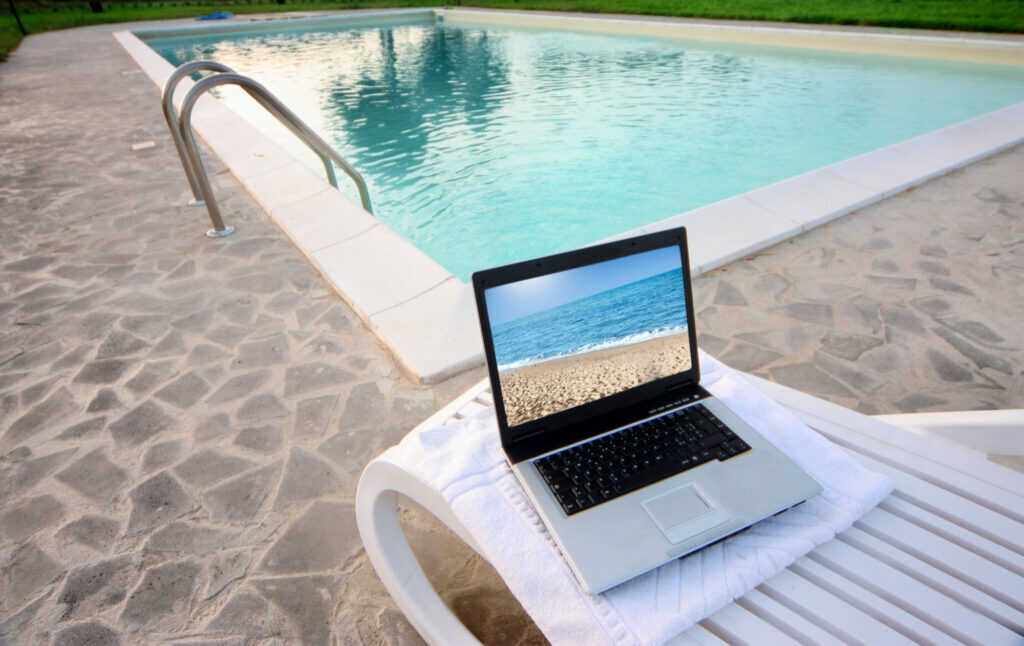Debunking Common Pool Maintenance Myths
Discover the truth behind common pool maintenance myths and learn how to effectively care for your pool. Don’t let misinformation hinder your pool’s health!
In the world of pool maintenance, misinformation can run rampant. Many pool owners find themselves ensnared in myths that can lead to unnecessary expenses, ineffective practices, and even damage to their pools. It’s essential to separate fact from fiction to keep your swimming pool in pristine condition. In this article, we will debunk some of the most common pool maintenance myths and provide you with accurate, actionable information to help you care for your pool effectively.
Myth 1: You Only Need to Shock Your Pool Once a Year
– One of the most persistent myths is that pool shocking is a seasonal task that can be done once a year. In reality, shocking your pool—adding a high dose of chlorine to eliminate contaminants—should be done regularly, especially after heavy use, rain, or when the pool has been closed for an extended period.- The frequency of shocking depends on various factors such as pool usage, weather conditions, and the presence of organic matter. For optimal water quality, it’s recommended to shock your pool every couple of weeks during peak season and after significant events (like parties or storms).- According to the Center for Disease Control and Prevention (CDC), maintaining proper chlorine levels is vital for preventing waterborne illnesses, making regular shock treatments essential for pool health.
Myth 2: My Pool is Clean If the Water Looks Clear
– While clear water often gives the illusion of cleanliness, it doesn’t guarantee that your pool is free from harmful bacteria and contaminants. Many pathogens can thrive in clear water without being visible to the naked eye.- Regular testing of your pool water is crucial to ensure that pH levels and chlorine concentrations are safe. You should use a reliable pool testing kit to measure these levels weekly and adjust the chemicals accordingly.- A study by the National Swimming Pool Foundation revealed that maintaining proper water chemistry is vital not just for clarity but also for the overall health of swimmers. Hence, it’s important to remember that a visually appealing pool doesn’t always equate to safe water.
Myth 3: All Pool Chemicals Can Be Mixed Together
– Some pool owners believe that mixing pool chemicals is a harmless practice. This myth can lead to dangerous reactions and should be debunked immediately.- Different pool chemicals can react violently when mixed, resulting in harmful gases or even chemical burns. For instance, mixing chlorine and acid can create toxic chlorine gas, which is hazardous to your health.- Always follow the manufacturer’s guidelines and safety data sheets for each chemical. Maintain a strict protocol of adding one chemical at a time and waiting for it to dissolve before adding another. This precaution ensures your safety and the effective functioning of your pool system.
Myth 4: A Pool Cover Eliminates the Need for Maintenance
– Many believe that using a pool cover means they can skip maintenance altogether. While a pool cover can significantly reduce debris and evaporation, it does not eliminate the need for regular maintenance.- Algae and bacteria can still grow under a cover if not monitored. Regularly check water levels, and chemistry, and remove any debris that might accumulate on the cover.- According to the American Pool and Spa Association, even covered pools need to be checked weekly to ensure water quality and prevent any buildup of contaminants. So, while covers are beneficial, they are not a substitute for regular upkeep.
Myth 5: You Can Use Regular Household Bleach to Chlorinate Your Pool
– Another widespread misconception is that household bleach can be used to chlorinate swimming pools. While bleach contains chlorine, it also contains additives that can be harmful to pool equipment and water chemistry.- Pool-specific chlorine products are formulated to maintain stability and effectiveness in pool environments. Using household bleach can lead to fluctuations in chlorine levels and potential damage to your pool infrastructure.- For the safety and longevity of your pool, always use products specifically designed for pool sanitation. This will ensure that your pool remains clean and safe for swimming.
Myth 6: Higher Chlorine Levels Are Always Better
– Some pool owners think that higher levels of chlorine are a surefire way to keep the pool clean and safe. However, excessive chlorine can lead to skin and eye irritation for swimmers and can damage pool surfaces and equipment.- The ideal free chlorine level for a swimming pool is typically between 1-3 ppm (parts per million). Regular testing and adjustments will help keep chlorine levels in this optimal range.- In addition, over-chlorination can lead to a phenomenon known as “chlorine lock,” where the chlorine becomes ineffective due to high levels of combined chlorine. This condition can further complicate pool maintenance and should be avoided.
Myth 7: You Don’t Need a Professional for Pool Maintenance
– Many believe that pool maintenance is a task that can be easily managed without professional help. While some pool owners are capable of maintaining their pools, the expertise of professionals can be invaluable.- Professionals not only bring experience but also access to specialized tools and equipment that can ensure your pool is maintained to the highest standards. They can identify potential problems before they escalate, saving you time and money.- If you’re considering starting a pool service business, you might want to explore options like
pool routes for sale in Florida or other regions to gain a foothold in this growing industry.
Myth 8: You Can Ignore the Filter if the Water Looks Good
– The pool filter plays a critical role in maintaining water quality by removing debris, dirt, and impurities. Ignoring filter maintenance can lead to poor water quality, regardless of how clear the water appears.- Filters should be cleaned regularly according to the manufacturer’s instructions. This may involve backwashing sand filters, replacing cartridges, or cleaning DE (diatomaceous earth) filters.- The Environmental Protection Agency (EPA) recommends routine filter maintenance to enhance efficiency and prolong the lifespan of your pool system. Neglecting this component can lead to larger, more costly issues.
Myth 9: After Winterizing, I Can Leave My Pool Alone Until Summer
– Winterizing is essential for pools in colder climates, but it doesn’t mean you can neglect your pool until summer. Regular checks during the winter months ensure that the pool remains in good condition.- Even winterized pools can develop problems such as water freezing in the plumbing or cover damage from debris accumulation. It’s crucial to check your pool’s condition periodically.- According to The Association of Pool and Spa Professionals, regular winter maintenance can prevent costly repairs and ensure a smooth opening when the warmer months arrive.
Myth 10: You Only Need to Maintain Your Pool When It’s in Use
– Many pool owners make the mistake of reducing maintenance when their pools are not in use. However, neglecting your pool during off-seasons can result in serious issues.- Algae can grow quickly in stagnant water, and failing to maintain water chemistry can lead to infestations and costly clean-ups. Regular maintenance is essential, regardless of usage.- The best practice is to follow a consistent maintenance routine year-round. This helps prevent problems and ensures that your pool is always ready for use when the opportunity arises.
Conclusion
– In summary, understanding the truth behind these common pool maintenance myths is crucial for every pool owner. Regular maintenance, proper chemical usage, and professional assistance when necessary can ensure that your pool remains safe, clean, and enjoyable.- As you embark on your pool maintenance journey, remember to adhere to best practices and seek professional help when needed. By doing so, you’ll not only save money in the long run but also enhance your swimming experience.- If you’re considering purchasing a pool route and entering the pool service business, check out
Superior Pool Routes for valuable resources and training that can guide you in your new venture. Don’t let myths hold you back; equip yourself with the right knowledge and take control of your pool care today!



